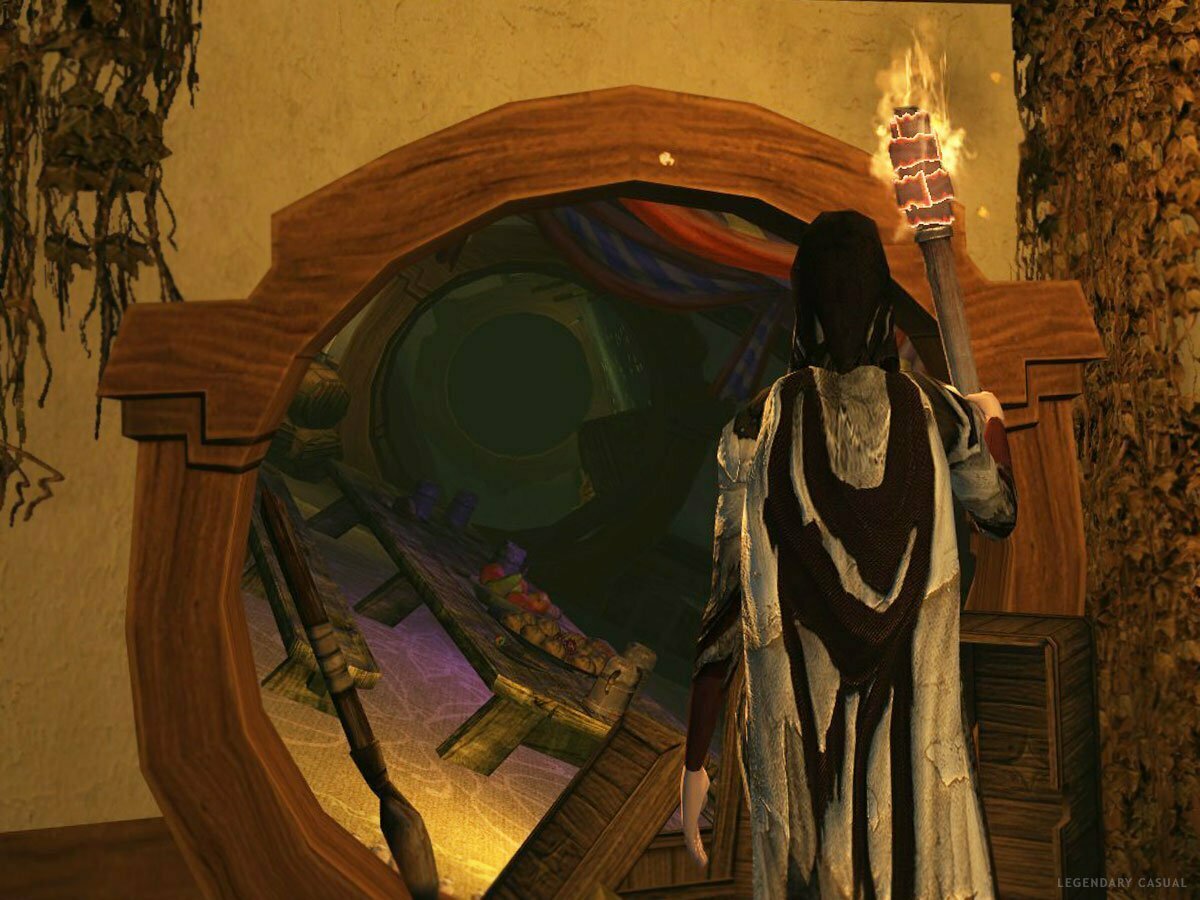In Lord of the Rings Online crafting professions are known as Vocations. Your character will choose one Vocation which includes three professions. Each Vocation has a primary craft, a gathering, and one secondary profession that usually requires ingredients from a different gathering skill.
The sections below will explain the different vocations and guide you in choosing the best crafting profession for your class and the notable crafted items they each create. First, I’ll cover some of the important details about crafting and to consider when choosing a Vocation.
How To Start Crafting
Seek out a Mistress/Master of Apprentices in your nearest town crafting center around level 5. You can have one Vocation per character, which includes three professions as outlined below. This is where you choose your Vocation and complete the introduction quests for each profession.
You can change your Vocation by speaking to the Apprentice, however you will lose your progress on the professions you unlearn unless you are picking that profession up again right away. For example, if I switch from a Yeoman (Cook, Farmer, Tailor) to a Woodsman (Forester, Farmer, Woodworker) I will only maintain progress on the Farmer, the other professions skills will be lost.
Where To Get Recipes
Recipes can be bought from Provisioner vendors in the crafting areas, scrolls which contain random recipes can drop from enemies or be purchased from Skirmish vendors, and Reputation factions will offer special recipes for sale too.
| Apprentices | Supplier | Provisioner |
|---|---|---|
 |  |  |
Crafting Supplies
There are a few ways to get crafting supplies, there are Suppliers and Provisioners located in the crafting areas that sell many components necessary for crafting. Then there are Gathering items located across the landscape like mining ores, gathering wood, farming crops, hides that drop from animals, and artifact texts to name a few. You’ll come across these items exploring and questing and there is always the community to trade with or buy/sell in the Auction House.
Universal Ingredient Packs are used in place of supplies to craft items, however the items crafted will become bound to the character or account, making them not trade able. These Universal Ingredient Packs can be gained easily from completing Task quests or looting an ingredient crate housing item each day.
Equipping Tools
To perform crafting in LOTRO you must equip the appropriate tools for the profession, such as a Prospector’s Tool for gathering ore, or Tailor’s Tool if you are a Tailor, and so on. These tools start out as inferior in quality and can be upgraded to higher-quality through vendors, crafted as a Metalsmith and traded between players via the Auction House.
There is a Universal Toolkit that provides buffs to crafting critical chance and reduces the time to craft, it’s one of my must have items from the LOTRO Store as well as the Crafting Carry-Alls that help with inventory space.
Where To Craft
You will need to visit a crafting area to use a station for processing and producing items. Starter area places where craft halls are Michel Delving, Celondim, Duillond, Thorin’s Hall, Combe, and Bree. When near a craft station press T on your keyboard or click on Crafting in the Menu to access your craft panel and begin. You can also Right-Click on the craft station to open your craft panel.
| Craft Station | Profession |
|---|---|
| Farmland | Farmer |
| Forge | Metalsmith, Weaponsmith, Prospector |
| Oven or Campfire | Cook |
| Study | Scholar |
| Workbench | Farmer, Forester, Jeweler, Tailor, Woodworker |
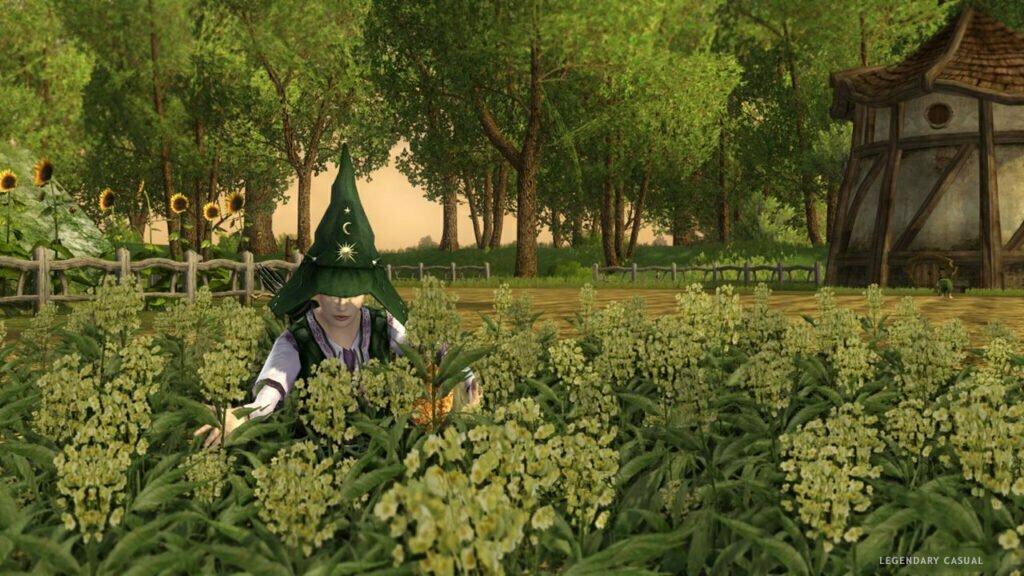
Mastery & Critical Success
There are currently 14 Tiers of crafting (levels) in each Profession. Mastering each Tier of your craft will provide a chance for critical success when making items, this can produce a higher quality item, or in other cases multiple items. You will know your fully mastered when the brown and yellow anvil are filled in on your crafting panel.
Mastery Components for each profession drop in the world or as by products of processing that can be used for higher critical chances in crafting. Universal Optional Crafting Ingredients will give 100% critical success, these items are rare and can be purchased from LOTRO Store.
Crafting Guilds
As you specialize in your Vocation and reach Expert level in your profession you can join a Crafting Guild for the professions that create items. A character can be in maximum two guilds and Gathering professions like Farming, Forester, and Prospector do not have guilds.
Crafting Guilds have a reputation you will have to progress through in order to purchase their crafting recipes.
Is Crafting Worth It in LOTRO?
Yes! Crafting in LOTRO produces items that are useful and most items can be traded or sold in the Auction House. You’ll find some of the best armor for leveling in crafting professions, weapons are good for pre-50 levels, lots of unique class specific items, buffs and food, and cosmetic dyes are just some of the things that come to mind. I definitely recommend having a crafting Vocation for each character.
What Professions Make House Decor?
All professions except for Prospecting. You can craft decorations for your houses and there are crafting stations you can obtain from other methods, like LOTRO Store or Figments Vendor, to craft in your house.
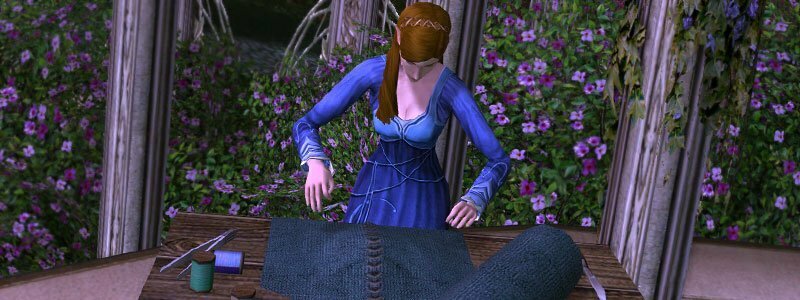
Explorer
Tailor – Forester – Prospector
The Explorer is one of the most important vocations because you gain access to the two primary gathering skills, Prospector and Forester. Explorer makes one of the best Vocations to have for the character you play most often as you can gather resources and funnel those to your alternate characters for use in their Vocations.
A Forester processes hides for leather crafting in the Tailor profession, which allows the creation of light and medium armor. Forester also gathers wood to be used with the Woodworker profession. With Prospector you gather ore and gemstones which are used in other professions like Jeweler, Armorsmith, and Weaponsmith or sold for coin.
Best Classes for Explorer: Any Class for Primary Gathering, Burglar, Rune-keeper, Captain
Useful Items Tailors Craft: Light Armor, Medium Armor, Cloaks, Burglar Tools, Rune-keeper Satchels, Captain Armaments & Banners

Historian
Scholar – Farmer – Weaponsmith
A Historian’s primary focus is the Scholar and Farmer to make dyes for costume outfits, books for Hunters, Minstrels, and Lore-masters, oils/enchantments for Hunters, and fun items like fireworks. Scholars also make many useful buff potions and scrolls, as well as sheet music for Minstrels.
Farmers are great for Scholar and Cooks, they can make various dye materials, food ingredients, and pipe-weed of all different varieties.
Weaponsmiths craft axes, daggers, swords, throwing axes as well as Burglar items like marbles and caltrops. Essentially, they make metal weapons. Weaponsmith requires ore from Prospector.
Best Classes for Historian: Lore-master, Warden, Hunter, Minstrel
Useful Items Scholars Craft: Dyes, Potions, Buff Scrolls, Hunter Books, Minstrel Songbooks, Lore-master Books

Tinker
Jeweler – Prospector – Cook
Another good vocation for the main character, especially a solo character with no alts, as you can cook foods to buff yourself and your fellowship, as well as make jewelry. It is to be noted that this is the only vocation that can make jewelry. Jewelers craft rune-stones for Rune-keepers and Champion runes.
Prospector is great to have as a profession because you can gather up the raw materials and sell it in the auction house for a decent profit, and do the same with the others, food and jewelry.
Best Class for Tinker: Any Class, Rune-keeper, Champion, Brawler
Useful Items Jewelers Craft: Jewelry for all Classes, Talismans, Brooches, Champion Runes, Rune-keeper Rune-stones, Brawler Belts

Woodsman
Woodworker – Forester – Farmer
A Woodworker is able to use the processed materials from a Forester and make weapons such as a club, spear, staff, javelins or a bow. They can also make Minstrel instruments and Beorning carvings.
Foresters are able to gather branches from the ground and process any hides that a dropped from animals, such as bears or wolves. Farmer is useful to supply Cooks with food ingredients, making good pipe-weed and coffee.
Best Classes for Woodsman: Minstrel, Hunter, Warden, Lore-master
Useful Items Woodworkers Make: Beorning Carvings, Bows, Staves, Clubs, Javelin/Spear, Minstrel Instruments
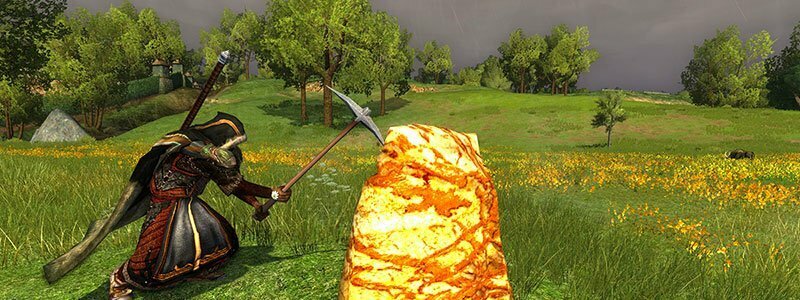
Armorer
Metalsmith – Prospector – Tailor
The Armorer makes armor with the Metalsmith and Tailor professions producing heavy, medium or light. Metalsmith uses Prospector to make heavy armors and shields, as well as tools for professions and decorations for your house. It should be noted that almost every profession can make some degree of decoration for your own house however.
Metalsmith is also used to make class specific items such as chisels for Rune-keepers, belts for Guardians, and emblems for Captains. Prospector is needed to craft Metalsmith items.
Tailoring is the only profession that creates herald armaments for the Captain’s herald, cloaks, light armor, medium armor, and more housing decorations. Tailor needs the Forester profession to process hides for crafting armor.
Best Classes for Armourer: Champion, Guardian, Captain, Brawler
Useful Items Crafted by Metalsmith: Heavy Armor, Shields, Captain Emblems, Guardian Belts, Rune-keeper Chisel
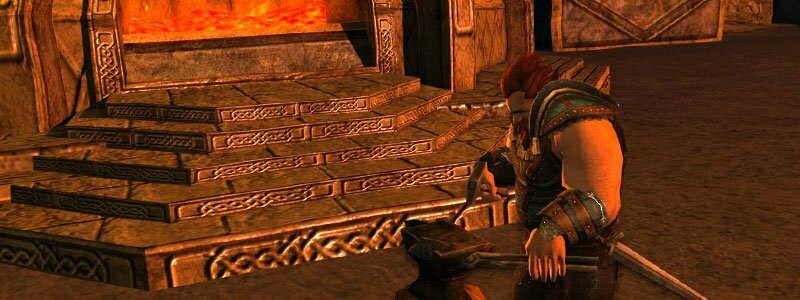
Armsman
Weaponsmith – Prospector – Woodworker
The Armsman chiefly makes weapons made of metal axes, daggers, swords, throwing axes and burglar marbles and caltrops. Weaponsmith needs Prospector to gather ores for crafting weapons.
Woodworker can make a variety of wooden weapons but needs the Forester profession to process the wood materials.
Best Classes for Armsman: Champion, Burglar, Captain, Guardian
Useful Items Crafted by Weaponsmith: Metal Weapons and Shield Spikes

Yeoman
Cook – Farmer – Tailor
The Yeoman specializes in making a variety of food buffs as a Cook and requires the Farmer to grow the ingredients needed to craft the food items.
The Tailor is a side craft for the Yeoman and needs a Forester to process hides to make armors and other items, like Burglar tools and Rune-keeper satchels.
Best Classes for Yeoman: Any Class, Beorning, Lore-master, Burglar, Hunter, Minstrel, Rune-keeper
Useful Items Cooks Craft: Food, Pet Food
Get Crafty! ?
That is our guide to vocations, we hope you found this to be helpful in determining your crafting specializations in Lord of the Rings Online. Did you know you can fish in LOTRO? Check out our guide to the Hobby Fishing.




